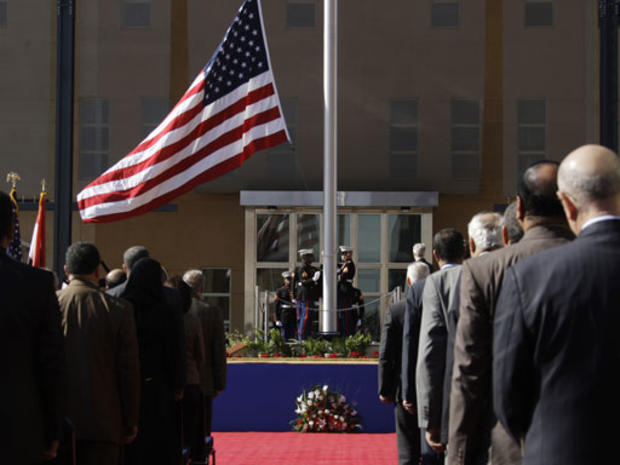State Department Awarding Private Contractors Up to $10 Billion to Safeguard Embassies
The State Department is awarding contracts that could amount to $10 billion to eight private security companies over the next five years. The Worldwide Protective Services contracts will cover safeguarding State Department facilities and personnel in Iraq, Afghanistan, Pakistan and Israel, according to sources familiar with the contracting arrangements. The contracts, which are for one year with four options to renew, will be awarded over the next few months.
So far, close to a billion dollars has been awarded to SOC to provide security for the U.S. Embassy and diplomats stationed in Baghdad.
Another company, EOD Technologies was awarded a contract worth an estimated quarter of a billion dollars to provide security for the U.S. Embassy in Kabul.
Afghanistan's government recently banned private security contractors from working in the country. In August, President Hamid Karzai said that private security contractors would have to cease operations by the end 2010.
Afghan police and soldiers will fill the gap left as some of the 20,000 to 30,000 private security forces hired by the U.S. government exit the country.
Karzai said that private security companies tasked with guarding international embassies or organizations are exempt from the ban. U.S. officials are working with Afghan counterparts to ensure compliance with the security contractor decree.
A Blackwater (now called Xe) affiliated company, International Development Solutions, is also eligible to bid on future contracts, along with Aegis Defense Services, DynCorp International, Global Strategies Group, Torres International Services and Triple Canopy, Inc.
Xe has been the subject of investigations. In February, U.S. Senate investigators said Xe hired violent drug users to help train the Afghan army and declared "sidearms for everyone"--even though employees weren't authorized to carry weapons. The allegations came as part of an investigation into the 2009 shooting deaths of two Afghan civilians by employees of the company.
Blackwater has also formed a network of 30 shell companies and subsidiaries to try to get millions of dollars in government business after the company faced strong criticism for reckless conduct in Iraq, according to a New York Times report.

